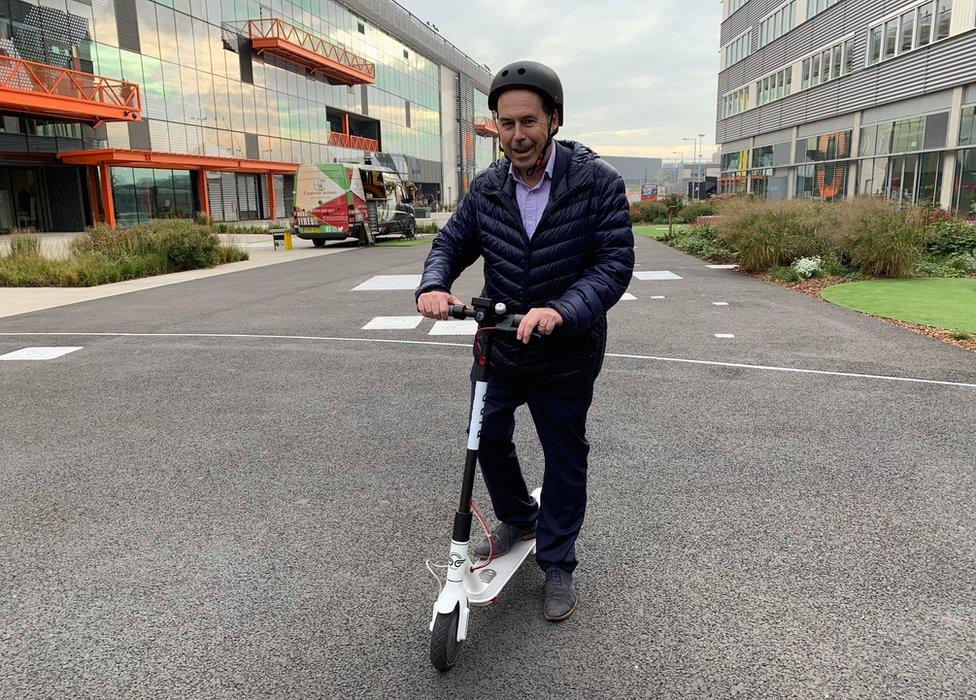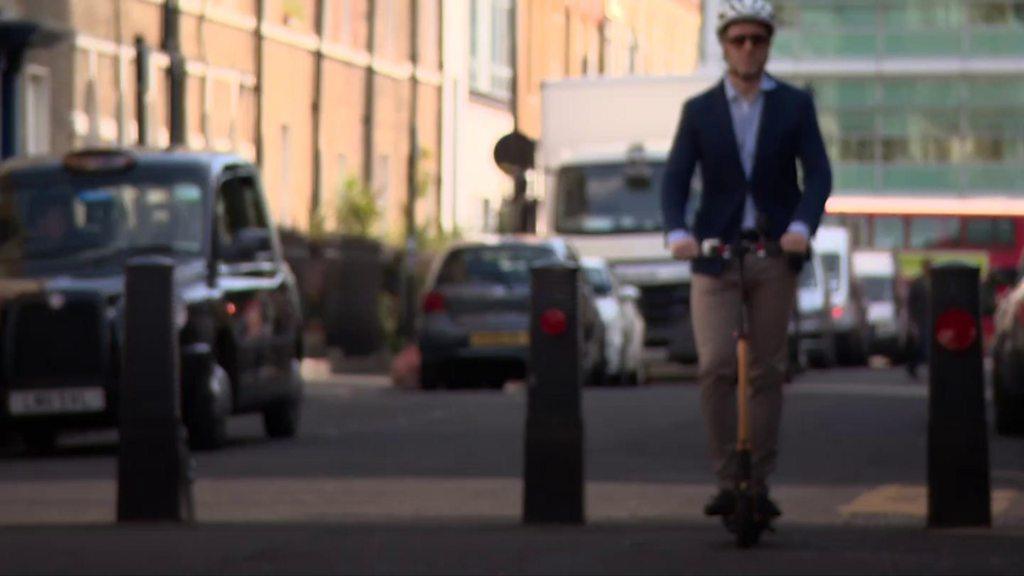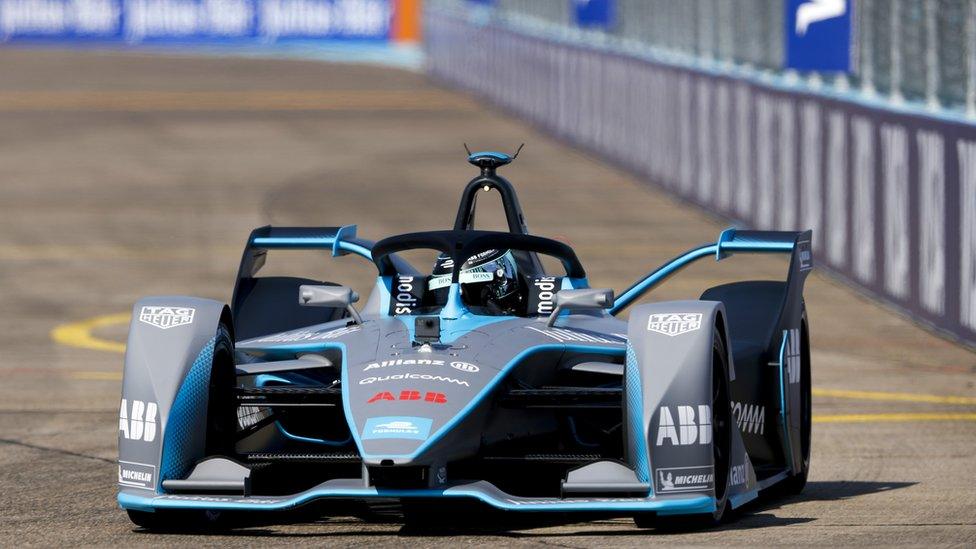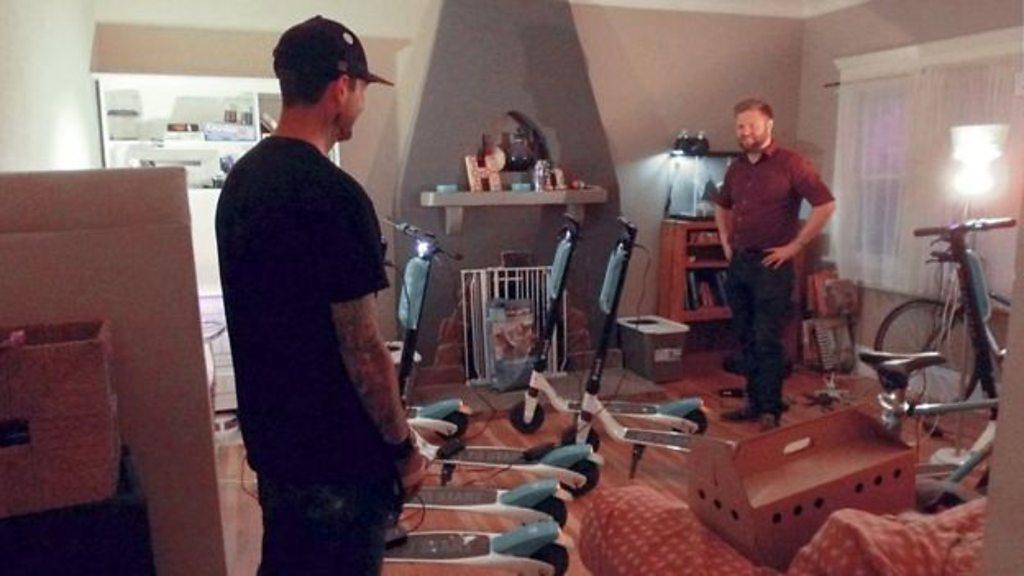Scooter firm Bird pushes for law change with London trial
- Published
- comments
WATCH: Electric scooter rental firm Bird is launching a limited service in London
The Californian electric scooter business Bird is launching a pilot service on London's Queen Elizabeth Olympic Park.
It is illegal to ride powered scooters on public roads or pavements in the UK but Bird hopes to get the law changed within 12 months.
The company, which operates in around 40 American cities, believes that its pilot scheme - on private land - will demonstrate the usefulness of this hop on, hop off form of transport and its environmental benefits.
The scooters are unlocked with an app, and will only be available between 07:00 and 21:00.
They will then be collected and charged overnight, and Bird says that will mean that the problems with theft, vandalism - and late-night drunks - which have afflicted some bike-sharing schemes, will be avoided.
I had a go and after a wobbly start found the scooter an easier ride than expected, though rounding a corner presented a challenge.

Rory takes a Bird for a spin
And while I was happy enough tootling along a path across the park, I'm not so sure I'd enjoy sharing one of London's busy highways with lorries, cars and bikes - nor I suspect would they be too tolerant of a swarm of scooters.
But Bird's UK and Nordics chief Richard Corbett says that in Paris and Amsterdam, where it is already operating, the scooters have quickly found a place in the urban transport mix and shown they can be safe.
By making a big noise about this small pilot scheme the Californian company hopes to build momentum towards getting the law changed, so that it can start a commercial operation on London's streets.
Mr Corbett seems certain that the regulators and lawmakers will move fast:"It's a journey that we have to start and today's the first step, but I'm confident that within the next 12 months we should have regulations changing."
That seems very optimistic. Having tangled with Uber and its "move fast and break things philosophy", London's regulators are likely to be cautious about this latest impatient American tech firm.
Then there is the question of the business model.
Users will pay £1 ($1.30) to unlock a scooter and then 20p per minute. That will be reasonably cheap for the short distances in the Olympic Park, albeit more costly than the free shuttle bus taking people to Stratford station.
If it does get approval to operate in London, users may baulk at paying £5 for a 20-minute ride.
Still, Bird can afford to lose money for quite a while. This summer it raised $300m (£230m) at a reported valuation of $2bn.
Maybe it is the future of short hop transport - or perhaps the Silicon Valley venture capitalists have lost touch with the reality of how ordinary mortals move across cities.
- Published21 September 2018

- Published21 September 2018

- Published14 August 2018

- Published16 July 2018
